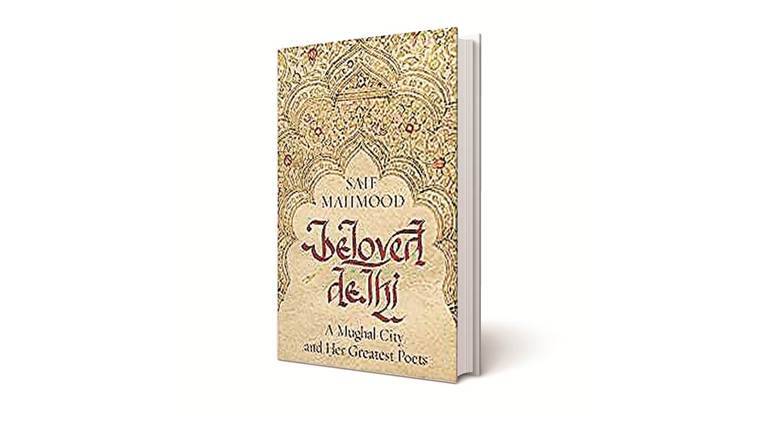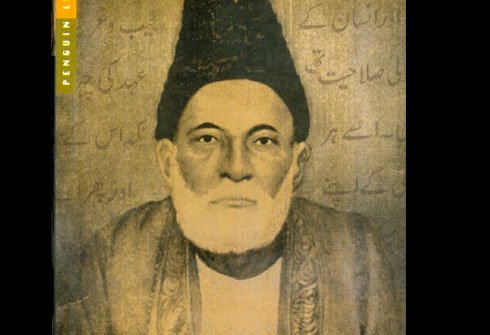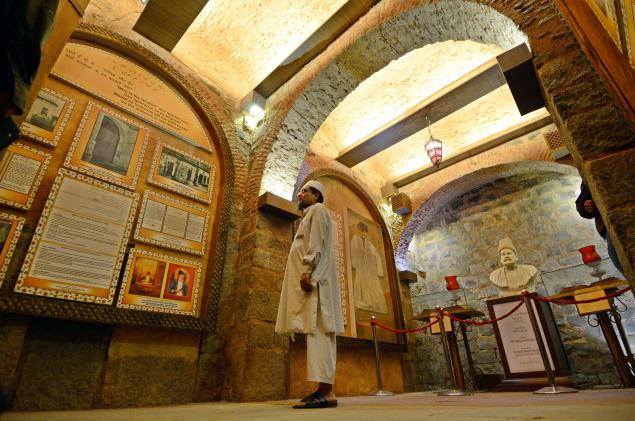The life and times of Delhi’s leading poets of the Mughal era and their enrichment of a syncretic language

Beloved Delhi: A Mughal City and Her Greatest Poets
Saif Mahmood
Speaking Tiger
367 pages
Rs 599
Shaikh Mohammad Ibrahim Zauq, the poetry ustaad of the last Mughal Emperor, Bahadur Shah ‘Zafar’ saw, in his lifetime, the Mughal Empire brought to its knees (though not formally ended — Zauq, perhaps mercifully, died three years before the ‘Ghadar’ of 1857, the uprising that was to so impact the fabric of Delhi’s social, cultural and literary life). But an impoverished Mughal court and an equally penurious north Indian aristocracy meant that many of Zauq’s contemporaries drifted south to Hyderabad, where there was still patronage to be sought and stipends to be earned. Zauq, however, when asked why he did not migrate to the Deccan, had famously remarked, “In dinon garche Dakan mein hai bohot qadr-e-sukhan/ Kaun jaaye Zauq par Dilli ki galiyaan chhor kar?” As Saif Mahmood translates this in his book Beloved Delhi: “Although poetry is greatly valued in the Deccan these days, Zauq, who would trade that for the lanes of Delhi?”
It is this — the connection between Delhi and her Urdu poets, an almost umbilical cord that binds the city to her greatest bards — that forms an important theme in Mahmood’s book. Beloved Delhi has, as its subtitle, A Mughal City and Her Greatest Poets, and those words describe the book perfectly: it is about the Mughal city of Delhi — not the city before or after the Mughals (though there is a fleeting mention of those as well), and about its greatest poets of the 18th and 19th centuries.
Mahmood examines the life and work of eight of Delhi’s greatest Urdu poets, against the backdrop of the city. Mirza Mohammad Rafi Sauda, Khwaja Mir Dard, Mir Taqi Mir, Mirza Asadullah Khan Ghalib, Momin Khan Momin, Bahadur Shah Zafar, Shaikh Mohammad Ibrahim Zauq and Nawab Mirza Khan Daagh Dehlvi are the eight poets who form the subject of Mahmood’s book. For each poet, Mahmood begins with a biography (often preceded by a description of the current state of the poet’s grave or former home). The biography is followed by an insight into the most relevant aspects of the poet’s work — Sauda’s satire, Zauq’s use of everyday language, Momin’s sensuality, Ghalib’s often cryptic verses, and so on. Finally, there are selected verses (with translations) by each poet.
There are several reasons to recommend Beloved Delhi. Firstly, it’s a well-written, readable book that manages to strike a balance between being informative on the one hand and unintimidating, entertaining, even witty on the other. Mahmood handles with commendable skill a subject that is often perceived as unapproachable by those not familiar with the Urdu script, or who are daunted by the more Persianised form of the language. But it’s also a subject that is regaining popularity and Mahmood’s translations, his occasional helpful notes, and the very fact that he takes care to bring in popular connections — Hindi film music’s use of couplets and ghazals from classical poets, for example, or ghazals rendered by popular singers — helps make this poetry more relatable.
Also playing a major role in making the poetry easier to relate to is Mahmood’s approach to the lives of the men who wrote that poetry. He uses various sources — autobiographies, reminiscences of contemporaries, memoirs, correspondence, even the poetry they penned— to bring alive the men behind the verses. Sauda, so acerbic that his satire repeatedly got him into trouble. Mir, the mad egoist, who willingly wrote poetry in exchange for groceries. Momin, a brilliant hakim as well as a great poet. Ghalib, so addicted to gambling that it brought him into repeated conflict with the law (which, Mahmood, himself a lawyer, points out as being reflected in the many legal and judicial terms — muddai, talab, hukm, faujdaari, giraftaari, etc — that Ghalib uses in his poetry). Mahmood even busts some myths, such as the authorship of popular works attributed to poets like Zafar and Ghalib.
And there is Delhi. The Delhi of mushairas. A city where fakirs and courtesans could be heard singing Ghalib’s ghazals, where a language born out of a syncretic confluence of cultures and traditions was nurtured even through the turbulence and horror of 1857 and its aftermath. As much as he brings alive the eight poets he focusses on, Mahmood brings alive the Delhi that was so beloved to them.
Madhulika Liddle is a Delhi-based writer
source: http://www.indianexpress.com / The Indian Express / Home> Lifestyle> Books / by Madhulika Liddle / May 18th, 2019










